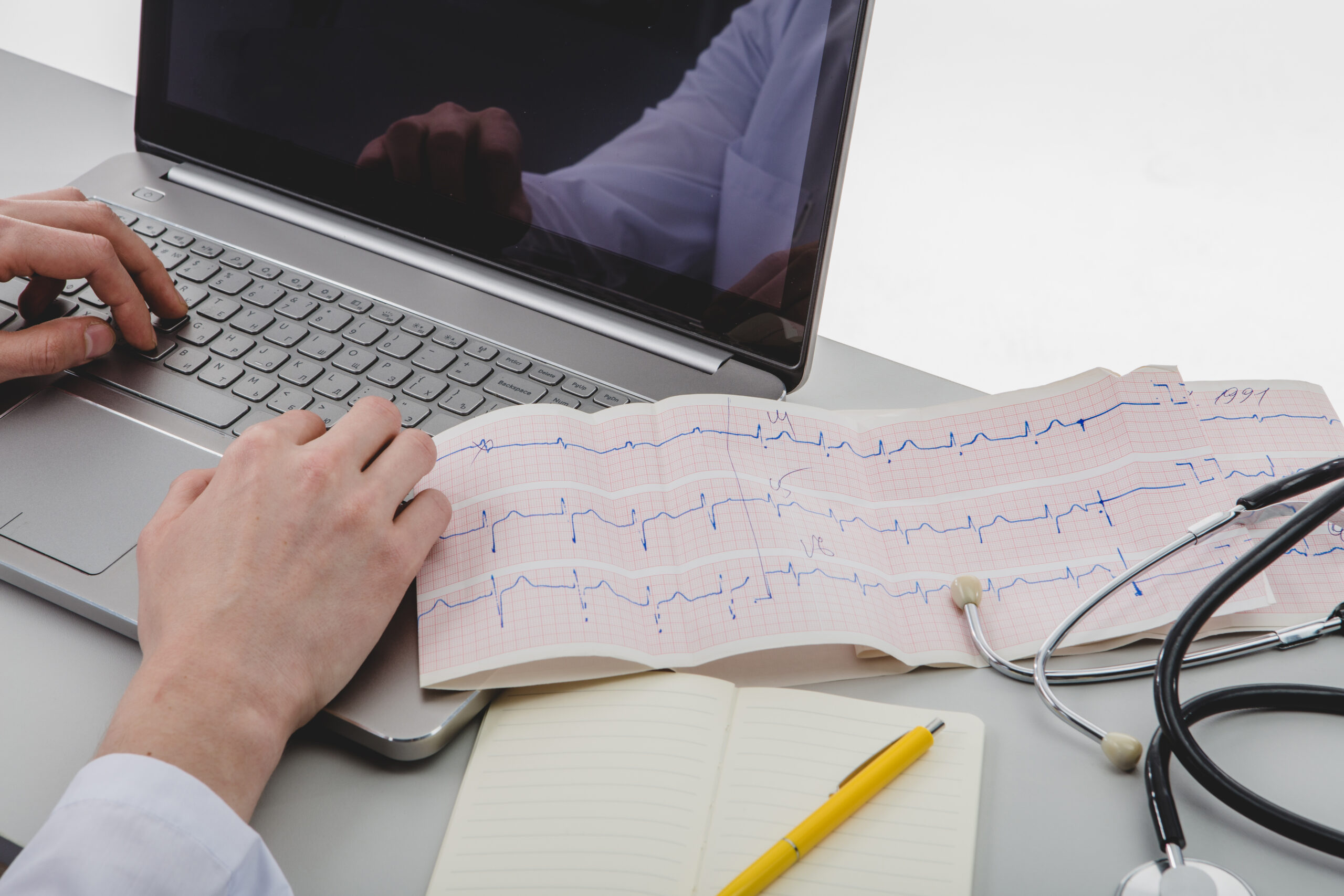A cardiologist specializes in diagnosing and treating acquired and primary defects and diseases of the heart and blood vessels. Their responsibilities include diagnosing patients, conducting examinations, ordering tests, implementing effective therapeutic techniques for heart and cardiovascular conditions, and providing care for cardiac patients during and after treatment.
The emphasis on prevention, which helps reduce the occurrence or progression of cardiovascular diseases, is equally important in a cardiologist's work.

Cardiology![]() is a field of medicine closely related to diseases of the heart and blood vessels and primary and acquired defects of these organs. Unfortunately, the number of cardiology patients has increased over the years, so the demand for good specialists in this field has not decreased.
is a field of medicine closely related to diseases of the heart and blood vessels and primary and acquired defects of these organs. Unfortunately, the number of cardiology patients has increased over the years, so the demand for good specialists in this field has not decreased.
Cardiology includes subspecialties such as:
A cardiologist specializes in treating heart and circulatory system diseases in adults. If you notice similar symptoms in your child, it's essential to see a pediatric cardiologist![]() . Pediatric cardiologists can diagnose and treat cardiac diseases
. Pediatric cardiologists can diagnose and treat cardiac diseases![]() in children up to 18.
in children up to 18.
Heart problems can affect people of all ages, including children and adolescents. It's important to note that children experience different circulatory system issues than adults, so pediatric cardiology is a distinct specialization.
A pediatric cardiologist, like an adult cardiologist, deals with the following medical areas:
At the same time, remember that any heart-related symptoms reported by your child should not be underestimated. Heart disorders in children may manifest themselves in a slightly different way than in adults.
A pediatric cardiologist is a doctor who possesses the necessary medical expertise and the skills required to work with young patients. Thus, they are specialists that should not evoke fear. The visit should be conducted in a pleasant and comfortable setting so the child feels at ease with the doctor.
During a consultation with a pediatric cardiologist, the doctor first speaks with the parent before engaging with the child to see if the child can communicate their symptoms. The initial examination during the visit involves listening to the child's heartbeat. If the cardiologist deems it necessary, they may recommend additional specialized tests and, if feasible, conduct them on-site. Following this, the cardiologist advises certain tests to be performed.
Parents need to talk to their child about the upcoming visit to the pediatric cardiologist, explaining things in a way the child can understand. Creating a friendly and comforting atmosphere is crucial to help the child feel safe and relaxed, which can impact the results of the cardiology tests.
Additionally, it is important to ensure that your child is dressed comfortably, as even something simple like a difficult-to-remove blouse can cause unnecessary stress. Before the visit, parents should prepare by gathering all the necessary medical documents and test results. This will help the pediatric cardiologist assess the child's health more effectively.
The diseases most frequently treated by a cardiologist include:
Cardiologists see patients who have problems with the heart, blood vessels, and the functioning of the circulatory system in general.
People who experience the following symptoms should see a doctor of this specialization:
If those symptoms have been present for a long time, visit a cardiologist.

It's important to seek the guidance of cardiologists regularly and undergo preventive check-ups![]() every few years. After turning 65, it's crucial to have this vital organ evaluated annually. The primary causes of heart disease are attributed to lifestyle factors such as stress, poor eating habits, lack of exercise, and unhealthy diets. As these factors are prevalent in our lives, the number of individuals affected by heart diseases continues to rise. Therefore, adopting a healthy lifestyle and routinely consulting a cardiologist is essential for timely intervention if treatment is needed.
every few years. After turning 65, it's crucial to have this vital organ evaluated annually. The primary causes of heart disease are attributed to lifestyle factors such as stress, poor eating habits, lack of exercise, and unhealthy diets. As these factors are prevalent in our lives, the number of individuals affected by heart diseases continues to rise. Therefore, adopting a healthy lifestyle and routinely consulting a cardiologist is essential for timely intervention if treatment is needed.
When you visit a cardiologist for the first time, feeling a bit anxious is normal. The cardiologist will ask you questions to ensure an accurate diagnosis. However, this in-depth interview is an advantage. The more the cardiologist knows about your symptoms, family medical history, and lifestyle, the better they can help you. During your first discussion, the cardiologist may inquire about any troubling symptoms, including those seemingly unrelated to the heart.
They will also want to know about your past serious illnesses, chronic conditions, and the medications you take. Additionally, the cardiologist will ask about previous treatments and surgeries, family history of heart disease, your lifestyle, including diet, exercise, stress levels, and any recent significant life changes.
Honesty is significant during a visit to a cardiologist – the first and every subsequent one. You should not hide anything or feel embarrassed when talking to a doctor: every fact, even those that are unimportant from our point of view, may be important for the correct diagnosis and, consequently, for the proper selection of treatment methods.
For a visit to a cardiologist to give the specialist a picture of our health condition, it is worth having existing medical documentation with us – the more extensive it is, the better. If possible, it is best to take the following documents to your first visit to a cardiologist:
Immediately before visiting a cardiologist, it would be ideal to perform a set of basic tests, including:
We can obtain a referral for such tests from a family doctor who recommended that we see a cardiologist.
During the visit, the cardiologist collects an interview from the patient and asks him, among others, about chronic diseases, medications taken, disturbing symptoms, and situations in which these symptoms intensify (e.g., chest pain after exercise, deterioration of exercise tolerance, increased blood pressure at a certain time of the day).
The doctor listens to the patient using a stethoscope. The visit usually includes measuring blood pressure.
The cardiologist is likely to request additional cardiological tests to confirm or rule out a potential diagnosis based on the analysis of the patient's medical history and the initial interview. These often include:
The cardiologist may refer the patient for further tests, procedures, or consultations with other specialists, e.g., a pulmonologist or neurologist.

The treatment of cardiac ailments can take many forms and depends on the specific diseases and their severity, as well as the individual predispositions of the patient. It is significant to strictly follow the cardiologist's recommendations – especially introducing changes to your lifestyle – as well as systematically taking medications and attending follow-up visits (every 3-4 months, unless the doctor recommends otherwise).
Sometimes, it becomes necessary to undergo a procedure or cardiac surgery to restore the proper functioning of the cardiovascular system. The most commonly performed cardiological procedures![]() include:
include: